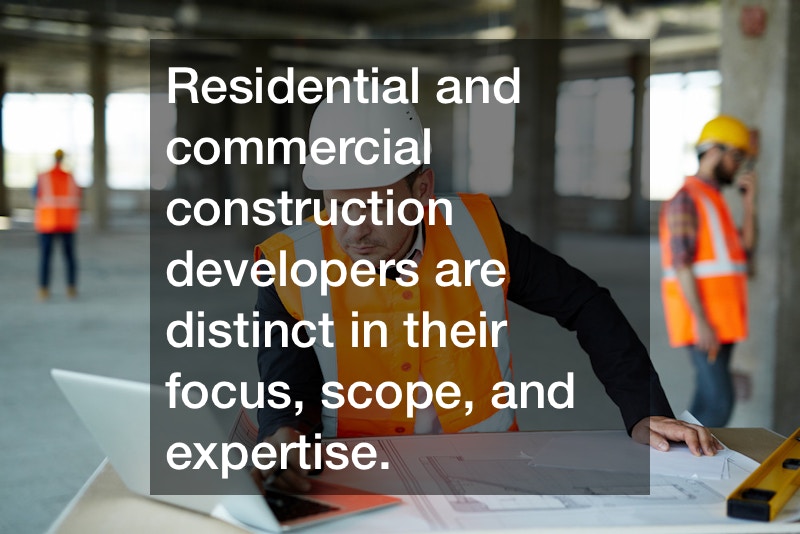Residential and commercial construction developers are distinct in their focus, scope, and expertise. Residential developers specialize in constructing properties for residential purposes, such as single-family homes, apartments, or condominiums. Their focus is on meeting the housing needs of individuals and families. Residential projects typically involve smaller-scale developments compared to commercial projects. Residential construction may involve a few houses or a small apartment complex.
In contrast, commercial projects can range from medium-sized office buildings to large-scale shopping centers or industrial complexes. Commercial developers focus on building properties intended for business purposes. Their goal is to create spaces that accommodate commercial activities and cater to the needs of businesses and their customers. Commercial developments often require more complex planning to meet the diverse needs of businesses and ensure efficient operations.

Construction projects are subject to different regulations and zoning requirements. Residential developments must comply with local building codes and residential zoning regulations. Commercial projects face additional regulations related to safety, accessibility, environmental impact, and zoning restrictions specific to commercial use. Commercial developers must navigate these regulations to obtain the necessary permits and ensure compliance throughout the construction process.
Residential and commercial real estate markets have distinct characteristics. Population growth, demographics, and housing demand influence the residential market. Commercial construction developers need to consider factors like economic trends, market demand for specific types of commercial spaces, and the potential for attracting tenants or buyers. They often conduct market research and feasibility studies.
